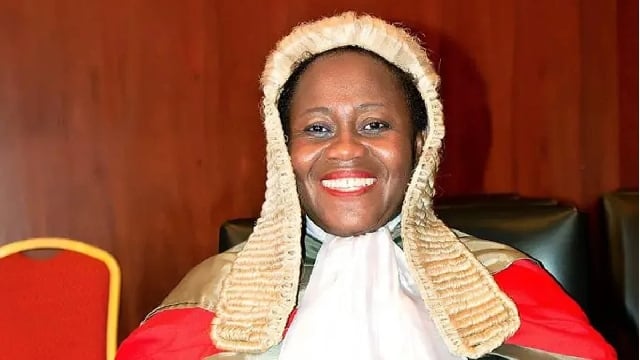Private legal practitioner John Owusu Agyemang has voiced significant concern over what he perceives as undue interference by the Supreme Court in Ghana’s parliamentary procedures. During an interview on Accra 100.5 FM’s Ghana Yensom morning show, he elaborated on his concerns surrounding the Supreme Court’s involvement in the recent declaration of vacant parliamentary seats made by Speaker Alban Bagbin. The issue arose when certain Members of Parliament (MPs) switched their political affiliations, prompting Bagbin to declare four seats vacant. Agyemang argued that such actions should remain strictly under the purview of Parliament, an independent and autonomous body that should be free from external influence, particularly from the Judiciary and the Executive.
Agyemang strongly believes that the Supreme Court has overstepped its boundaries by involving itself in the internal affairs of the Legislature. According to his interpretation of the Ghanaian Constitution, Parliament is granted the exclusive authority to handle its own procedures without interference from other branches of government. He stated unequivocally, “The Supreme Court has no business interfering with the procedures of the Legislature.” This stance is rooted in the constitutional principle that defines the separation of powers, arguing that each governmental branch must maintain a clear boundary to ensure a functioning democracy.
Further, Agyemang expressed skepticism regarding the prospect of Speaker Bagbin reversing his decision in light of the Supreme Court’s intervention through a stay of execution. He asserted that any such reversal would significantly undermine the autonomy and integrity of Parliament. Emphasizing the need for Parliament to develop its own procedural norms, he argued that external pressures should not dictate its workings. “It would be a significant blow to parliamentary procedures if the Speaker backs down on his decision due to the Supreme Court’s involvement,” he warned.
Delving deeper into the constitutional frameworks, Agyemang highlighted Article 97(1) of Ghana’s 1992 Constitution as the sole provision addressing the vacation of parliamentary seats. He maintained that no external institution, including the Supreme Court, has the jurisdiction to dictate how Parliament manages these procedures. His argument centers on the belief that the judiciary’s role should be limited to interpretation and application of the law, without encroaching upon legislative prerogatives.
The broader implications of Agyemang’s critique suggest a potential crisis in governance if the separation of powers is not respected. He cautioned that permitting such interference could lead to a slippery slope where legislative functions are compromised by judicial overreach, ultimately endangering the integrity of parliamentary democracy in Ghana. As such, he argued for a fortification of parliamentary autonomy in light of these recent events, advocating for the necessity of each branch of government to uphold its constitutional boundaries.
In conclusion, Agyemang’s arguments advocate for a reinstatement of legislative independence from judicial influence in Ghana. He fervently believes that Parliament’s mandate must remain unchallenged by any other governmental branch to preserve the democratic fabric of the nation. His emphatic stance reflects a growing concern among legal practitioners about the healthy functioning of democratic institutions, and calls for a reevaluation of the relationships among the different arms of government to ensure a balanced and effective governance system in Ghana.














